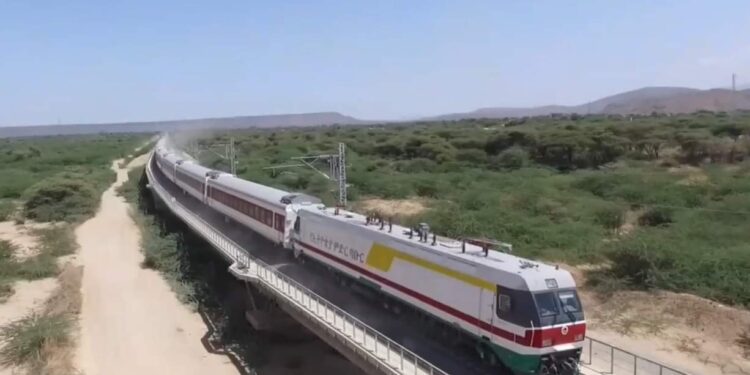By Ebi Kesiena
The Ethiopian-Djibouti Railway, constructed by China, commemorated six years of commercial operation over the weekend, marking the end of China’s official involvement in its operation and maintenance.
During a ceremony held in Addis Ababa, the Chinese team announced the conclusion of its tenure in overseeing the railway’s operation and upkeep.
Spanning 752.7 kilometers, the standard gauge railway connects landlocked Ethiopia with the Red Sea ports in neighboring Djibouti.
Ethiopia’s Speaker of Parliament, Tagesse Chafo, stressed on the Belt and Road Initiative’s significant role over the past decade in driving Ethiopia’s infrastructure development and manufacturing sector.
He noted the initiative’s contribution to job creation for Ethiopian youth, citing the Addis Ababa-Djibouti Railway as a prominent project under this initiative.
Responsibility for the full operation of the railway now transitions to the Ethiopia-Djibouti Standard Gauge Railway Share Company.
The railway has significantly reduced transportation time for freight, cutting it from over three days to less than 20 hours, thereby reducing costs by at least one-third and facilitating Ethiopia’s access to maritime trade ports.
Since its commencement of commercial operations for both passenger and freight services in January 2018, the railway has witnessed the passage of approximately 2,500 passenger trains and 7,700 freight trains, transporting a total of 9.5 million tonnes of goods.
According to Hassan Houmed, the Djiboutian Minister of Infrastructure and Transport, the railway’s operation has led to a roughly 20% increase in transportation volume at Djibouti’s ports.
Therefore, this electrified transnational railway stands as a pioneering infrastructure project in East Africa, earning praise from Ethiopian and Djiboutian government officials for its role in fostering regional economic prosperity.




































